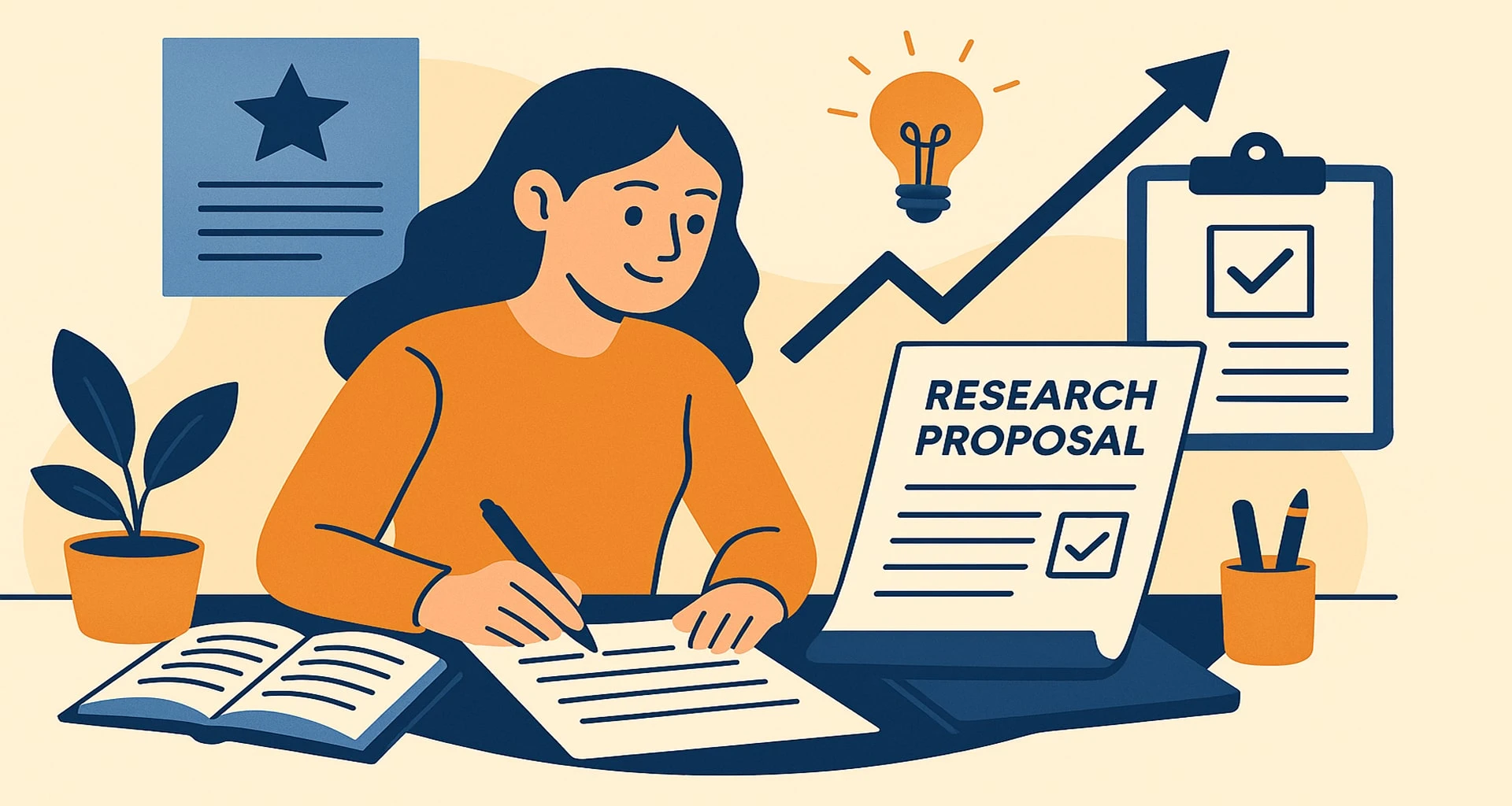
For each learner or researcher venturing into the world of academic research, there is a very significant landmark at the beginning of their learning process—the research proposal. If you plan to enroll for a Master's or a PhD or apply for grants for a long-term project, how well your proposal is done can make a significant difference to your academic future. But how do you go about getting yours not only through—but truly outstanding?
Here, we divide the steps involved how to write a research proposal that not only gets accepted but also reflects the scale of your scholarly thinking, communicative understanding, and strategic planning. Let's discuss all that you need to write an effective proposal that is different from others.
A research proposal is not a mere formality but actually the master plan of your research. It prescribes what you intend to research, why it matters, and how you will go about it. Finally, it convinces your examiners that you can do it and that your research is worth undertaking.
Your research proposal is your first impression on a panel of academics, a funding committee, or your supervisor. It has to present your idea clearly, its value in the discipline, and evidence that your approach is sound academically.
Need a head start? This is where you can obtain reliable research proposal assistance to improve your chances.
Before diving into the steps of writing a winning proposal, it's important to understand what can go wrong. Many proposals are rejected not because the idea isn’t good, but because of:
Vague or overly broad research questions
Poor structure or lack of clarity
Weak or unrealistic methodology
Lack of alignment with academic or funding body guidelines
Spelling, grammar, and formatting errors
Insufficient knowledge of existing literature
Most of these issues can be prevented if you start early and plan well—or if you ask for help from professionals who deal with academic writing.
Let's walk through the key components of a good research proposal.
A good title gives your reader a clear, immediate idea of the direction of your study.
Your introduction has to grab the reader's attention and introduce the research problem. State the background clearly and highlight why the problem is significant. Consider the following:
This is where you define the research gap and highlight how your study will close it.
Define your research goals and write down questions or hypotheses you intend to study. Make sure these are:
Specific and measurable
Reasonable in line with your time constraints and resources
Directly traceable back to your methodology
This helps show that your research is specific and feasible.
This section indicates your awareness of the research milieu as it exists now. You should:
Your methodology must be the central part of your proposal. This section tells the reader how you plan to conduct your research:
What research design will you employ (qualitative, quantitative, or mixed)?
What are your data collection and analysis methods?
What techniques, frameworks, or tools will you employ?
Also, explain why you have chosen this method and how it supports your research questions.
Use a Gantt chart, table, or bullet points to chart the phases of your research. A standard timeline should have:
This section demonstrates that you can efficiently plan time and resources.
What do you expect to learn? How will your research be beneficial? Outline the expected findings concisely and how they will contribute to the field. Additionally, consider the applied value of your findings, if any.
Finally, include all the sources listed in your proposal in one consistent style of citations (APA, MLA, Chicago, etc.). Proper citation adds credibility to your proposal.
While the structure of a research proposal can be quite generic, it is the way you write it that will set it apart. Here are some tips in brief:
No matter how great an idea, writing a high-quality proposal requires time, attention, and a good grasp of academic writing. That's where professional services come in.
If you're experiencing difficulty in starting or finishing your draft, there are professional academic advisors who can provide help with:
With seasoned academic writers, your proposal is to academic standards and your chances of being approved are enhanced. Need tailored help? Have experts who have helped thousands of students get their proposals approved help you.
This is the way hiring experts can improve your proposal's quality:

Learning to craft a research proposal is a valuable skill for any emerging researcher. It shows your ability to think critically, organize your thoughts, and make a compelling case for your research. Well done, a research proposal then becomes the basis of your thesis, dissertation, or research proposal.
So, if you are starting or struggling to turn your concept into a well-written document, don't hesitate to seek professional guidance. The course of your academic life can be dictated by the gap between an average proposal and an outstanding proposal.
Take the next step. Learn professional research proposal assistance or Get started today.